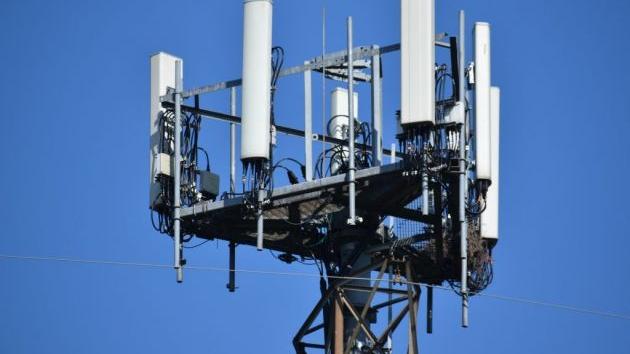All Providers to Have Equal Access to Infrastructure in the Future – Innovations of Law on Electronic Communications
 Thursday, 29.06.2023.
Thursday, 29.06.2023.
 15:19
15:19

The new law proscribes that all providers have equal access to the already built infrastructure, such as antennas, towers, poles, canals, lines in buildings, cable ducts etc.
– The main idea is to improve the development of the telecommunications infrastructure. Instead of having each operator build their own infrastructure, equal access will enable the sharing of the already set-up structures, which will lead to a reduction of costs and a more efficient use of resources. Also, this approach achieves the creation of a fair, competitive environment for all participants in the market – says Dragana Ilic, the director of Corporate Affairs at CETIN Serbia and the president of the NALED’s eGovernment Alliance.
The NALED has provided direct support to the law amendments through the project “Serbia at Your Fingertips – Digital Transformation for Development”, financed by the UNDP fund. Representatives of over 20 state organs, the Regulatory Authority for Electronic Communications and Postal Services (RATEL), the Regulatory Authority for Electronic Media (REM), the Foreign Investors Council (FIC), the National Convention on the European Union (NCEU) and experts from the economy took part in the preparation of the new legal solutions.
Another important new feature is the implementation of a mandatory registration of the existing and new prepaid mobile telephony users. This solution leads to a greater legal security and safety above all, because it facilitates the finding of the perpetrators of criminal acts who mostly use prepaid numbers in carrying out those criminal acts and enables an easier and quicker user identification.
– In the current situation, it has happened that certain users denied having used the services, and there was no evidence that could confirm it, so that kind of a practice will no longer be possible – Ilic points out and adds that registration will most probably be done through the eGovernment Portal, which would enable practically all citizens who have a profile on the Portal to complete this procedure quickly and efficiently, but there will also be the option of completing it in person, at the operators’ branch offices. This new feature will contribute to another wave of the increase of the users of electronic services, that is, eCitizens, which is another positive aspect of this change.
Talking into consideration the current trends in the field of digitization and the increasing presence of citizens in the online world, the third important new feature of the law is the implementation of the obligation of the issuing of eBills. All users will have the opportunity to gain insight into their monthly obligations through email or a mobile phone app, and potentially through text messages as well. That way, according to what the minister of information and telecommunications said before, considerable savings on money, time and paperwork are realized, which contributes to environmental preservation (bills are now printed on around 120 million pieces of paper a year).
With the fourth key innovation, the obligation for all companies to enable their end-users to call the phone numbers within the 116 range for free is implemented, such as the Call Center for Missing Children (116000) and the Call Center for Child Help (116111).
Finally, the amendments to the Law on Electronic Communications enable the operators to make joint investments or to jointly finance the networks for the transfer of large amounts of data, such as high-resolution video recording, at great speed and with great reliability, but also introduce the obligation of all new buildings and reconstructed office and residential buildings having planned and installed optical cables.
The law is harmonized with the existing EU directive on establishing the European Electronic Communications Code, which is the basis for the current regulatory framework of the EU in the field of electronic communications.
 NALED
NALED
 RATEL Beograd
RATEL Beograd
 Regulatorno telo za elektronske medije Beograd
Regulatorno telo za elektronske medije Beograd
 FIC - Savet stranih investitora
FIC - Savet stranih investitora
Naš izbor
Most Important News
06.04.2024. | Agriculture
Preconditions for Placement of Fresh Blueberries and Dried Plums in Chinese Market Secured

16.04.2024. | News
Jovan Ciric, Leasing Director Retail MPC Properties – MPC Echo symbolizes our desire for good ideas and innovative endeavors to spread freely and bring about positive changes

16.04.2024. | News
10.04.2024. | Finance, IT, Telecommunications, Tourism, Sports, Culture
Creative Industry – What This Serbian Economy Sector Worth EUR 2 Billion Encompasses

10.04.2024. | Finance, IT, Telecommunications, Tourism, Sports, Culture
26.04.2024. | Industry, Construction
Plans for continuation of construction of Belgrade sewer system announced – Section beneath river Sava to be 414 meters long, reconstruction of Karaburma tunnel

26.04.2024. | Industry, Construction
16.04.2024. | News
Economy Fair in Mostar opens – 26 companies from Serbia exhibiting

16.04.2024. | News
26.04.2024. | Construction
CLS: Where is the Ada Huja bridge project?

26.04.2024. | Construction


 Izdanje Srbija
Izdanje Srbija Serbische Ausgabe
Serbische Ausgabe Izdanje BiH
Izdanje BiH Izdanje Crna Gora
Izdanje Crna Gora


 News
News








